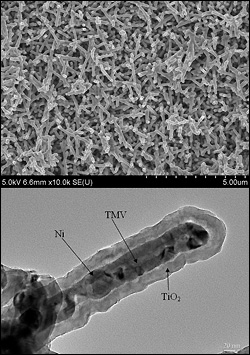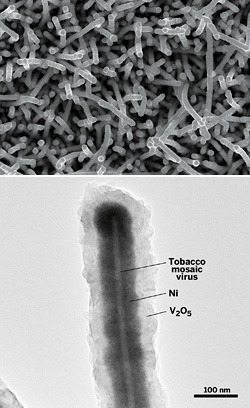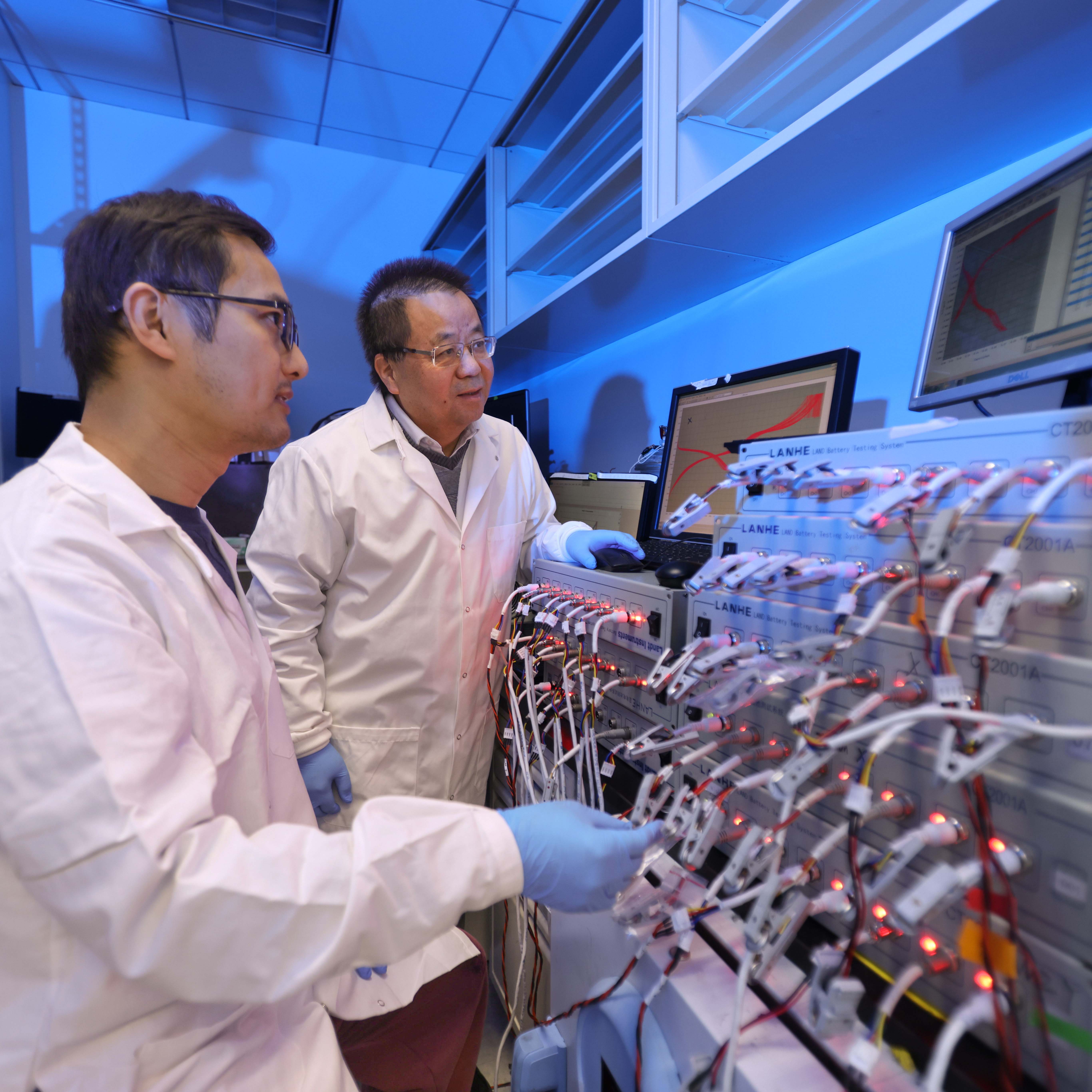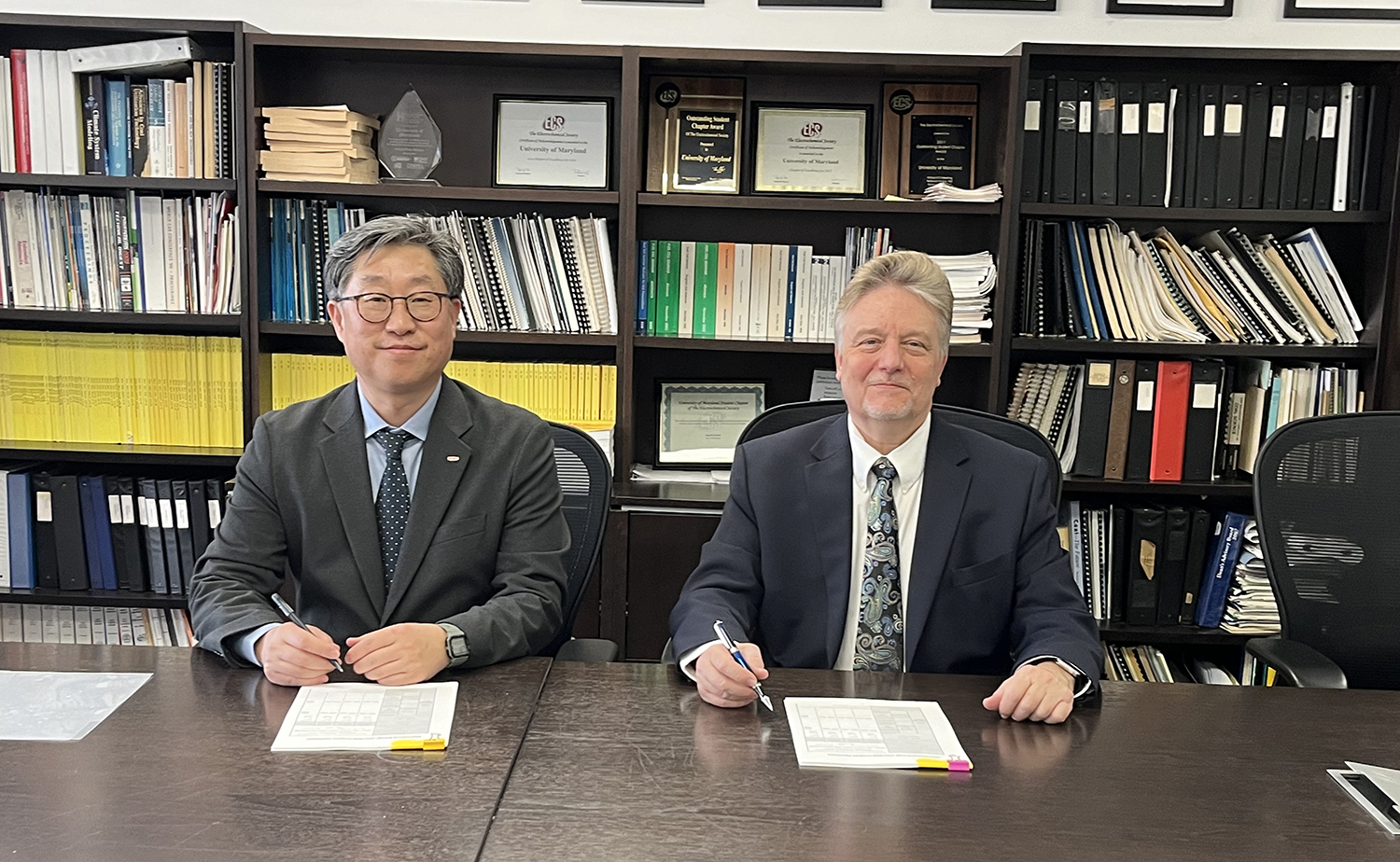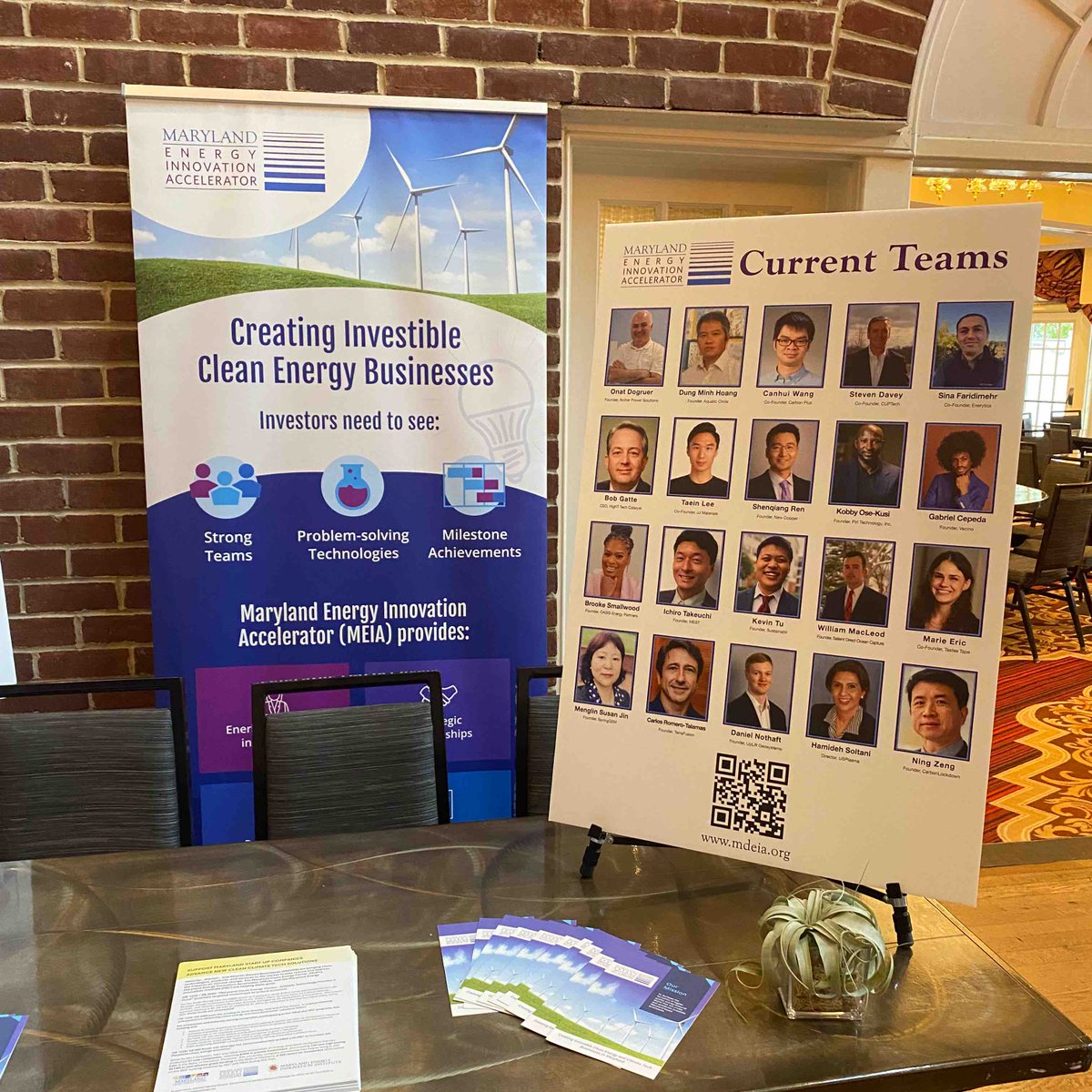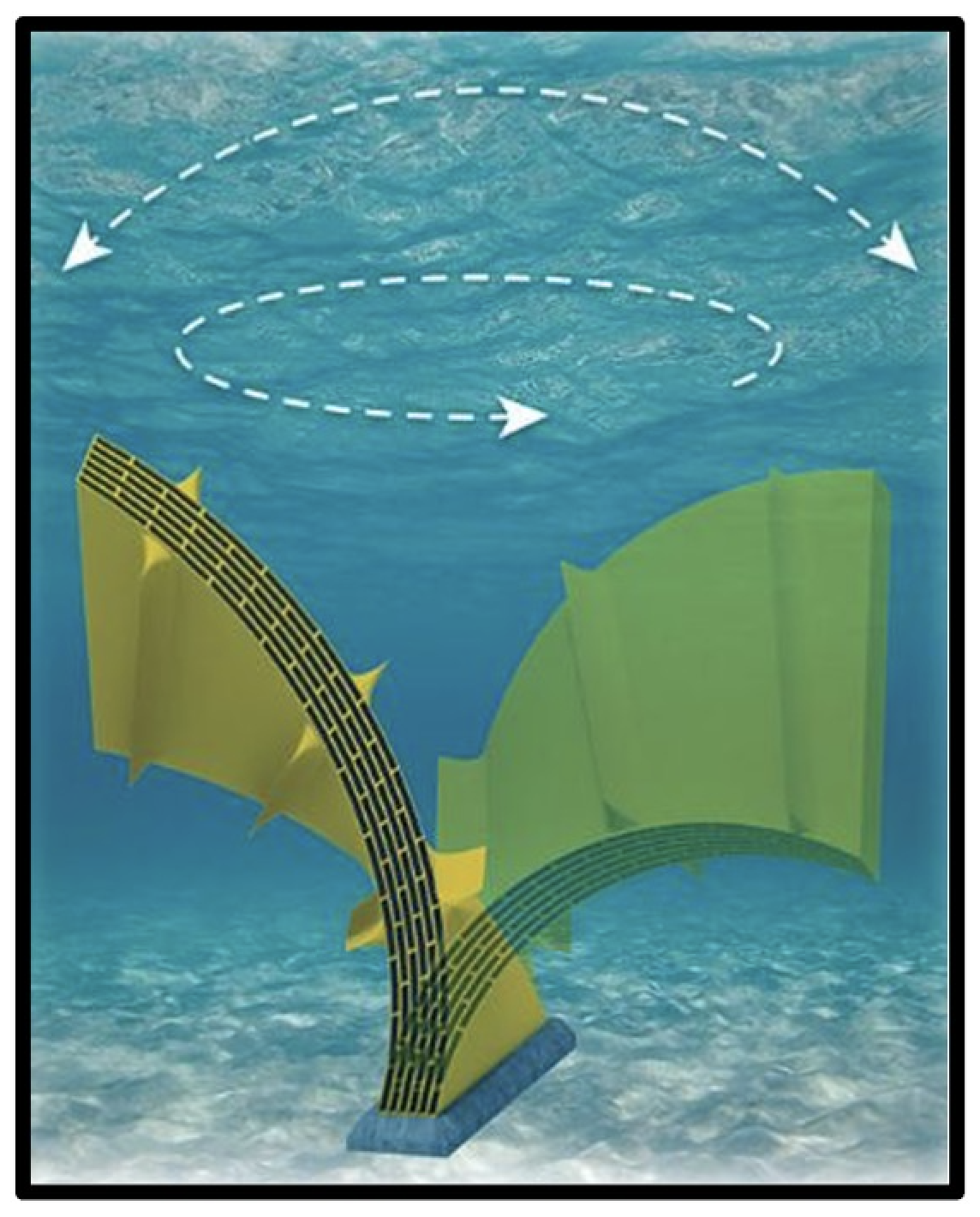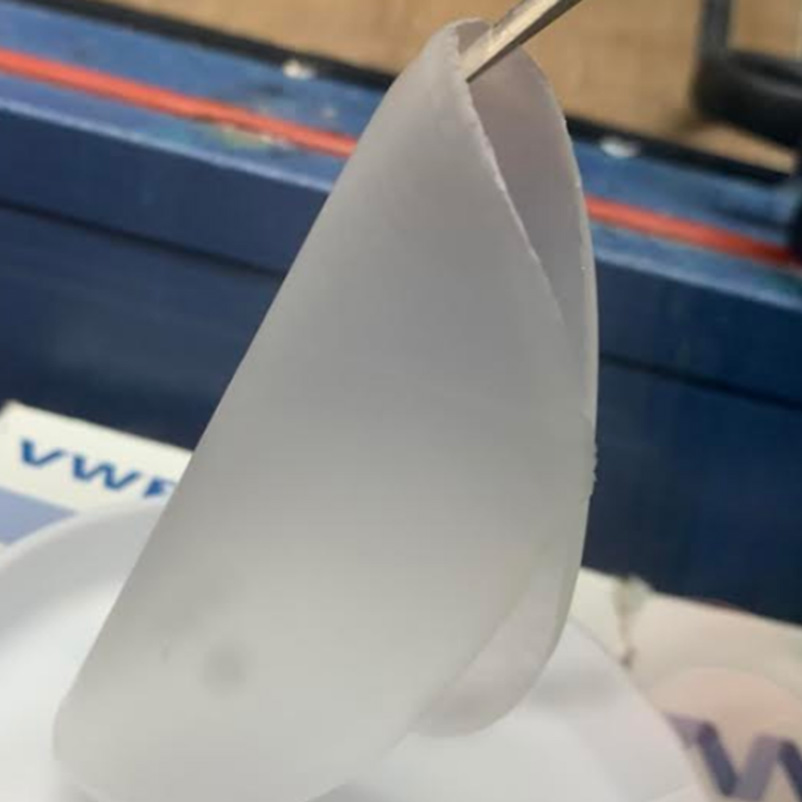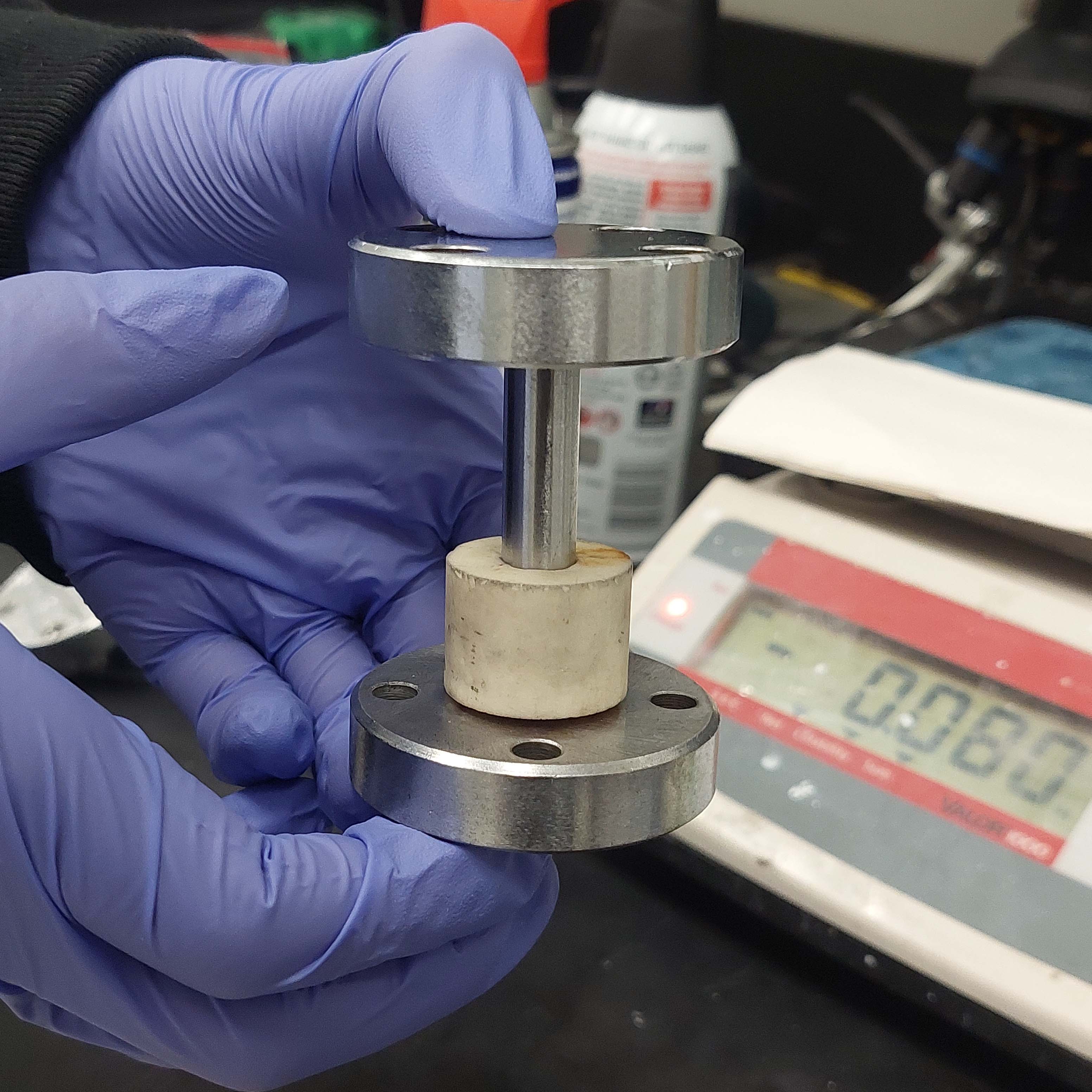News Story
New Battery Research Highlighted by Discovery News, Nanowerk
Research from two papers authored by University of Maryland faculty, staff and students that explain how the tobacco mosaic virus (TMV) can be used as a template to construct powerful, inexpensive, micro-scale lithium ion batteries has been featured on Discovery News and Nanowerk, the most popular nanotechnology industry news web site.
The papers, "Virus-Enabled Silicon Anode for Lithium-Ion Batteries" (published in ACS Nano) and "A Patterned Silicon Anode Fabricatied by Electrodeposition of Si on a Virus Enabled 3-Dimensional Current Collector" forthcoming in Advanced Functional Materials), were authored by professors James Culver (Plant Sciences and affiliate, Graduate Program in Bioengineering [BioE]), Reza Ghodssi (Electrical and Computer Engineering; Director, Institute for Systems Research; affiliate, BioE), and Chunsheng Wang (Chemical and Biomolecular Engineering [ChBE]); postdoctoral research associates Adam Brown (Institute for Bioscience and Biotechnology Research) and Juchen Guo (ChBE); and graduate students Konstantions Gerasopoulos (Materials Science and Engineering) and Xilin Chen (ChBE).
The research demonstrates how the rod-shaped tobacco mosaic virus can be genetically engineered to self-assemble into structures used as a template which, when coated with silicon and nickel ions, form a dense forest of nanowires standing on end that can be used as a high surface area anode for a battery. These tiny components could be used to power a variety of devices, are biorenewable, and are relatively easy and inexpensive to create. The technology is easily scaled for manufacturing. TMV harmless to humans, and what is used in the creation of the anodes is rendered inert by the process.
The group envisions the technology being implemented in everything from consumer electronics to highly portable power supplies and on-chip power sources for sensors and other security devices.
Learn More:
Discovery News: "Virus-Built Wearable Batteries Could Power Military" »
Nanowerk: "Virus-enabled fabrication of stable silicon anodes for lithium-ion batteries" »
Visit Dr. Ghodssi's web site »
Visit Dr. Wang's web site »
Published September 7, 2010
